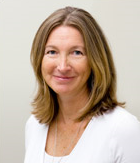- Calls to this hotline are currently being directed to Within Health, Fay or Eating Disorder Solutions
- Representatives are standing by 24/7 to help answer your questions
- All calls are confidential and HIPAA compliant
- There is no obligation or cost to call
- Eating Disorder Hope does not receive any commissions or fees dependent upon which provider you select
- Additional treatment providers are located on our directory or samhsa.gov
LGBT Community & Eating Disorders

Kim McCallum, M.D.
Kim McCallum, M.D. – Medical Director & Founder of McCallum Place
February 16, 2017
 EDH: We would like to start by welcoming our special guest Dr. McCallum, who is tweeting as @McCallumPlace
EDH: We would like to start by welcoming our special guest Dr. McCallum, who is tweeting as @McCallumPlace
EDH: Dr. McCallum is the Founder of The McCallum Place and is here to share her expertise. Welcome, Dr. McCallum!
EDH: It’s great to have you all here today! Let’s get started with some of our questions.
EDH: @McCallum Place Q1: Please tell us a little bit about yourself and your current involvement in the eating disorder community.
Dr. McCallum: A1: I am a psychiatrist working with eating disorders for 27 years. Trained in Psychiatry at UCLA and Child/Adolescent Psychiatry at WashU STL.
Dr. McCallum: A1: Developed programs across the continuum of care, including outpatient, partial hospital, residential and inpatient care.
Dr. McCallum: A1: Advisory board of NEDA and IAEDP, Assoc Prof of Clinical Psychiatry at Washington Univ, Founder of McCallum Place.
EDH: @McCallumPlace Q2: What are some unique challenges individuals face who are part of the LGBT Community?
Dr. McCallum: A2: Adolescent stresses are great because of complicated social, peer and family responses, including stigma and bullying
Dr. McCallum: A2: Finding treatment providers that understand subculture, anticipate challenges, and offer relevant resources may be challenging
Dr. McCallum: A2: Many Providers still have not explored their own biases regarding gender identity and sexual preference
Dr. McCallum: A2: Support is important. Since the onset of the eating disorder often occurs at the same time as Coming Out, families may be struggling to adjust
Dr. McCallum: A2: Many LGBT youth and young adults experience stigma and bullying as well as may have been victims of sexual trauma
EDH: @McCallumPlace Q3: What increased risks might an LGBT individual face when it comes to developing an eating disorder?
Dr. McCallum: A3: Stress from bullying, depression, and sexual trauma can increase the risk for all EDs, especially for bulimia
Dr. McCallum: A3: Homosexual men, especially in urban communities, report intense focus on body size and shape, muscularity as part of their subculture
Dr. McCallum: A3: Homosexual males may show a high risk of body dissatisfaction, increasing risk
Dr. McCallum: A3: Trans-sexual and gender-queer adolescents may adopt restriction as a way of inhibiting hormones that induce sexual development
EDH: @McCallumPlace Q4: What eating disorders are more commonly seen in the LGBT community?
Dr. McCallum: A4: We have seen all eating disorders in our LGBT population, but especially anorexia and bulimia.
Dr. McCallum: A4: Homosexual men are at increased risk for AN, BN
Dr. McCallum: A4: Transexual males and females show 4 times the risk
Dr. McCallum: A4: Increased risks for particular EDs probably depend on factors related to types of body image pressures, genetics and family factors.
Dr. McCallum: A4: Sexual trauma might increase the risk of a binge-purge-type presentation
EDH: @McCallumPlace Q5: What are helpful resources that specifically address the challenges individuals with eating disorders face and who identify as LGBT?
Dr. McCallum: A5: T-Feed is an online resource
Dr. McCallum: A5: NEDA, EDHope both have helpful information, statistics and resources
EDH: @McCallumPlace Q6: How can family members/friends best support their loved one who identifies as LGBT and suffers from an ED?
Dr. McCallum: A6: Become educated, Recognize special concerns related to growing up LGBT
Dr. McCallum: A6: Be open, kind and loving; Isolation can increase anxiety and risk for depression and other mental health problems
Dr. McCallum: A6: Emphasize the importance of recovery and focused attention to healthy eating/nutrition and acceptance of natural body weight
Dr. McCallum: A6: Intensive treatment may be necessary to address complexity when symptoms are severe
Dr. McCallum: A6: Find treatment centers that have committed to staff training and awareness about LGBTQ concerns
EDH: Thank you to everyone who participated in our Twitter Chat today! And thank you for the great insight and info about teens and eating disorders @McCallumPlace
EDH: If you are struggling with an eating disorder, we hope this might be a helpful resource for you.
EDH: Please stay tuned for future Twitter Chats from EDH, and visit us at www.eatingdisorderhope.com
EDH: If you are interested in learning more about McCallum Place, please visit their website at www.mccallumplace.com

The EatingDisorderHope.com editorial team comprises experienced writers, editors, and medical reviewers specializing in eating disorders, treatment, and mental and behavioral health.

